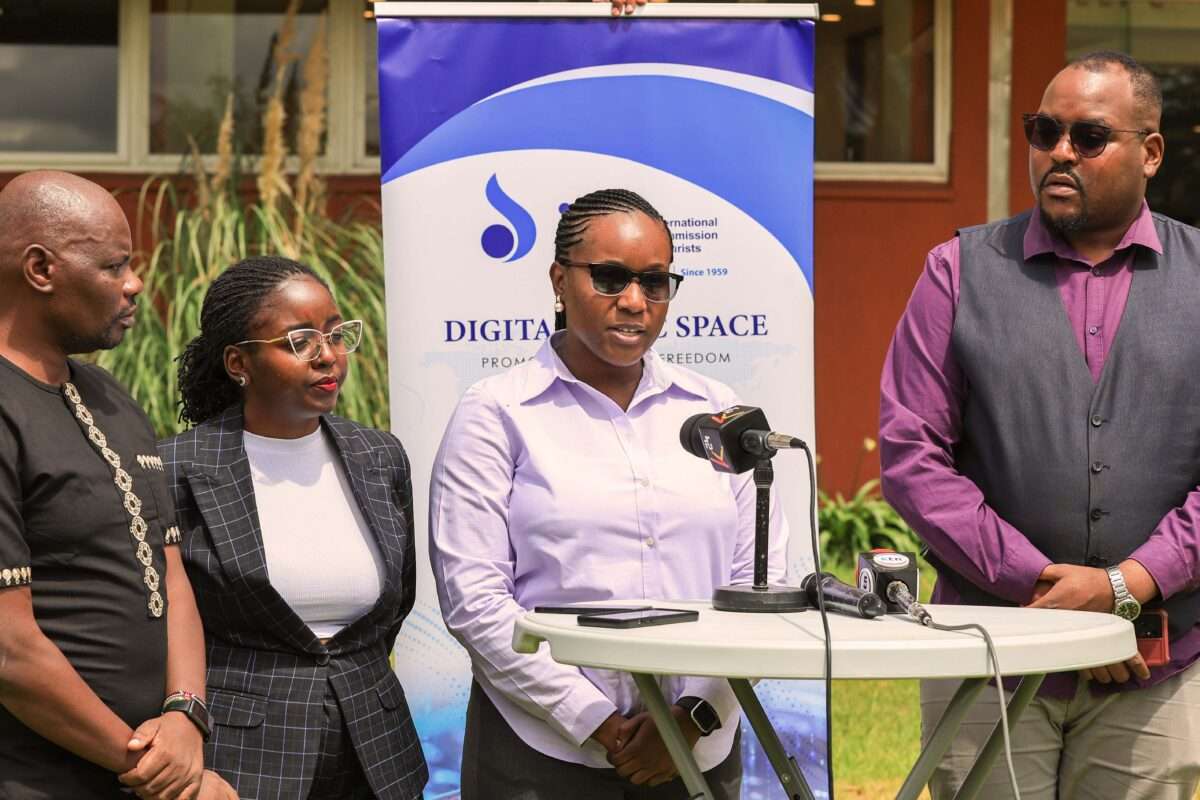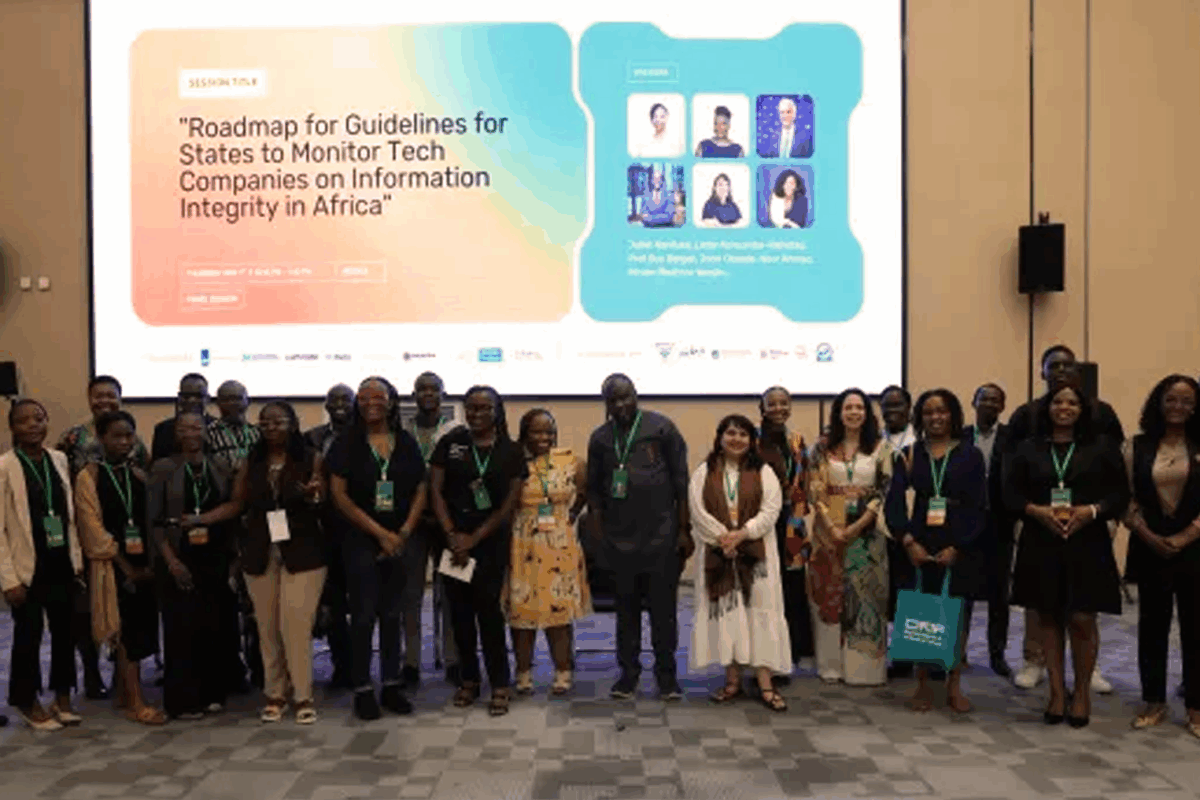By Peter Mwesige and Edrine Wanyama |
As Uganda inches closer to the 2026 general elections, state pressure on digital expression is intensifying. A wave of arrests, warnings, and regulatory threats is targeting online critics – particularly users of TikTok, X (formerly Twitter), and YouTube – raising concerns over the shrinking space for free expression and political dissent in the digital sphere.
This emerging crackdown reflects long-standing government discomfort with the influence of social media in political discourse, civic engagement, and political mobilisation. In a country where traditional media are increasingly constrained, social media has become a vital platform for citizens to access information, express opinions, and hold leaders to account. But as past election cycles in 2016 and 2021 have shown, authorities often treat digital civic engagement as a threat to stability, rather than a cornerstone of democratic participation.
Recent Arrests Spark Alarm
In recent months, a string of arrests has drawn attention to the government’s increasingly punitive approach to online dissent. In November 2024, three TikTokers were arrested and charged under the Computer Misuse (Amendment) Act, 2022 with “hate speech” and “spreading malicious information”. Their alleged offence? Posting videos deemed insulting to President Yoweri Museveni, the First Lady, and other high-ranking officials.
Just days later, a 21-year-old TikToker was sentenced to two years and eight months in prison for what prosecutors described as ridiculing and spreading hate speech and malicious information against President Museveni and his family. Emmanuel Nabugodi, who was also charged under the Computer Misuse (Amendment) Act, allegedly posted a video of a mock trial of the President and called for his public flogging.
Under section 26 of the Computer Misuse Act, it is an offence to “…share any information through a computer, which is likely to- (a) ridicule, degrade, or demean another person, group of persons, a tribe, an ethnicity, a religion, or gender; (b) create divisions among persons, a tribe, an ethnicity, a religion, or gender; or (c) promote hostility against a person, group of persons, a tribe, an ethnicity, a religion or gender.”
In July 2024, a 24-year-old TikToker had been sentenced to six years in prison for insulting the President, First Lady Janet Museveni, and the First Son Muhoozi Kainerugaba, who is also the Chief of Defence Forces.
That same month the former Rubaga Division Deputy Resident City Commissioner, Herbert Anderson Burora, was charged in court with spreading hate speech and malicious information about the Speaker of Parliament via his X handle. Burora, who spent three weeks on remand in prison, was released on bail. Comedians like Obed Lubega have also found themselves in the crosshairs, facing arrest and charges of “social media misuse” for politically themed satire.
This pattern mirrors earlier arrests of online critics. In 2019, academic and activist Stella Nyanzi, who was charged under the Computer Misuse Act, 2011 for allegedly harassing and annoying President Museveni in a Facebook post, was convicted and sentenced to 18 months in prison. Dr Nyanzi, who had spent nine months in prison, was convicted of “cyber harassment”. She was acquitted on appeal in February 2020, after spending 15 months in prison. She relocated to Germany in 2022.
In January 2022, novelist and activist Kakwenza Rukirabashaija was charged with offensive communication under the same law for allegedly insulting President Museveni and his son Kainerugaba on Twitter. Kakwenza, who was tortured while in detention, fled into exile in February 2022, after he was released on bail.
Legal Tools for Suppression
Uganda’s legal framework provides broad latitude for the suppression of digital expression. The Computer Misuse Act under section 29(5) criminalises a wide range of online behaviour, including “sending unsolicited messages,” “sharing malicious information,” and broadly defined “misuse” of social media. These vague provisions give authorities sweeping powers to arrest and prosecute individuals for content that would otherwise be protected under the Constitution.
Although the Penal Code provisions on the publication of false news and on sedition were repealed by the Supreme Court in 2004 and the Constitutional Court in 2010 respectively – the Uganda Law Revision (Miscellaneous Amendments) Act, 2023 formally repealed these offences in the Penal Code – their spirit lives on in new laws and administrative practices.
The Uganda Communications Commission (UCC) has become a central actor in this environment, frequently issuing threats to online content creators and broadcasters, and accusing them of violating “public morality” and “minimum broadcasting standards.”
In October 2024, the UCC warned media houses that their employees’ online conduct could cost them their broadcast licences. Employers were urged to police their staff’s social media posts and enforce compliance with internal policies – a move that blurs the line between professional oversight and state-enforced censorship.
Surveillance and Policy Threats
Alongside prosecutions and regulatory threats, the Ugandan government is ramping up surveillance of digital platforms. The planned importation of AI-powered equipment to monitor social media activity, as recently disclosed by the UCC, is raising red flags among digital rights advocates. The technology is reportedly intended to filter out so-called “harmful content,” including hate speech, disinformation, and incitement. However, without transparent oversight and public safeguards, such measures risk becoming tools of censorship rather than protection.
The state’s track record heightens these concerns. During the 2021 elections, Uganda experienced a near-total internet shutdown. In 2016, social media and mobile money services were blocked. And since January 2021, Facebook has remained inaccessible in Uganda due to a standoff with the government over the platform’s removal of pro-government accounts.
These precedents suggest that the government views online platforms not as forums for democratic exchange but as threats to political control. With elections on the horizon, similar disruptions could lie ahead.
Disinformation as a Pretext
Efforts to combat disinformation – while necessary in any democracy – are also being weaponised. The UCC’s recent “Dis-Mis Fake News Campaign,” launched in partnership with the Next Media Group, aims to address the proliferation of false information online. Yet statements condemning “explicit” or “offensive” content frequently target political commentary and satire rather than genuinely harmful content.
The blurring of lines between disinformation control and censorship underscores the need for balanced, rights-respecting approaches. Without clear definitions, independent oversight, and meaningful public input, anti-disinformation efforts can too easily be turned against legitimate expression.
A Chilling Effect
The cumulative effect of arrests, prosecutions, surveillance, and regulatory overreach is a chilling of free expression. Content creators, journalists, and ordinary citizens are increasingly engaging in self-censorship out of fear of legal repercussions or job loss. The pressure extends beyond individuals to media houses and telecom companies, many of which feel compelled to comply with state directives even when they infringe on constitutional rights.
This environment undermines Uganda’s commitments under national and international human rights law. Freedom of expression, access to information, and the right to privacy are not privileges to be granted or revoked; they are fundamental rights that should be protected, especially during elections.
The United Nations Human Rights Committee has stated in its General Comment No 34 on Article 19 of the International Covenant on Civil and Political Rights (ICCPR) that laws that provide special protection to public figures, such as “insult laws”, are not justifiable as they often suppress legitimate criticism. The UN Human Rights Committee adds that criminal penalties for insult laws are disproportionate and risk having a chilling effect on freedom of speech.
The Way Forward
To safeguard Uganda’s digital civic space in the lead-up to the 2026 elections, urgent action is needed. Laws that criminalise online expression must be reviewed and aligned with human rights standards. Regulatory bodies like the UCC must act independently and transparently, with clear mandates focused on enabling – not stifling – public discourse.
More broadly, the government, civil society, media, and the private sector must commit to upholding digital rights as integral to democratic participation. As Uganda prepares to head to the next elections, the internet must remain a space for open dialogue, not a battlefield for repression.





